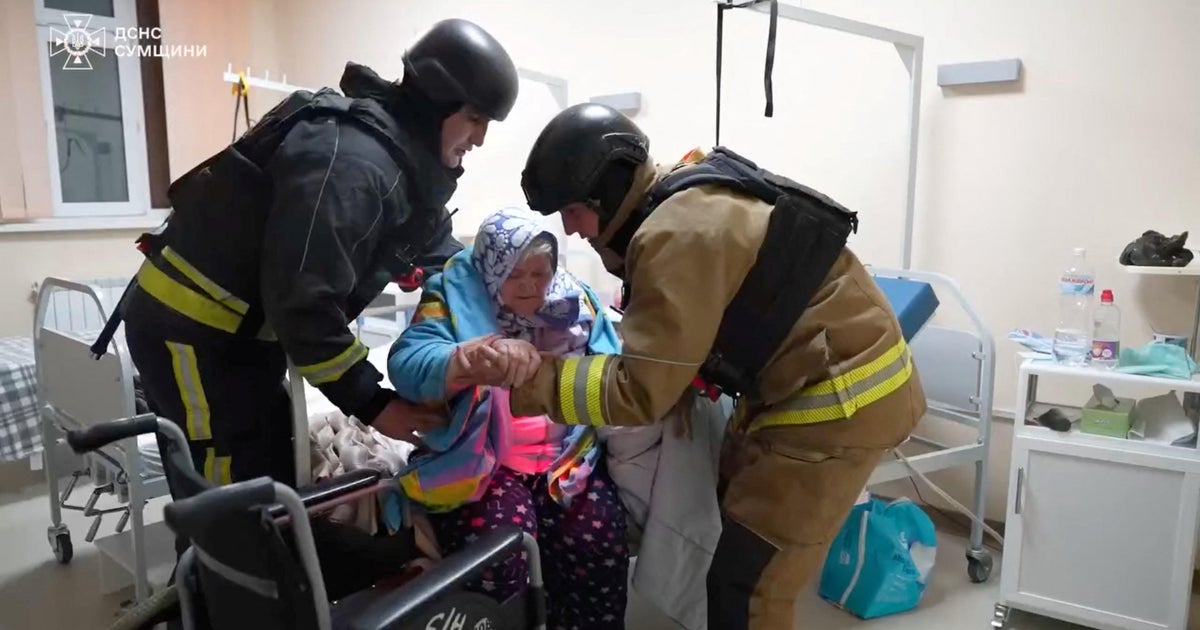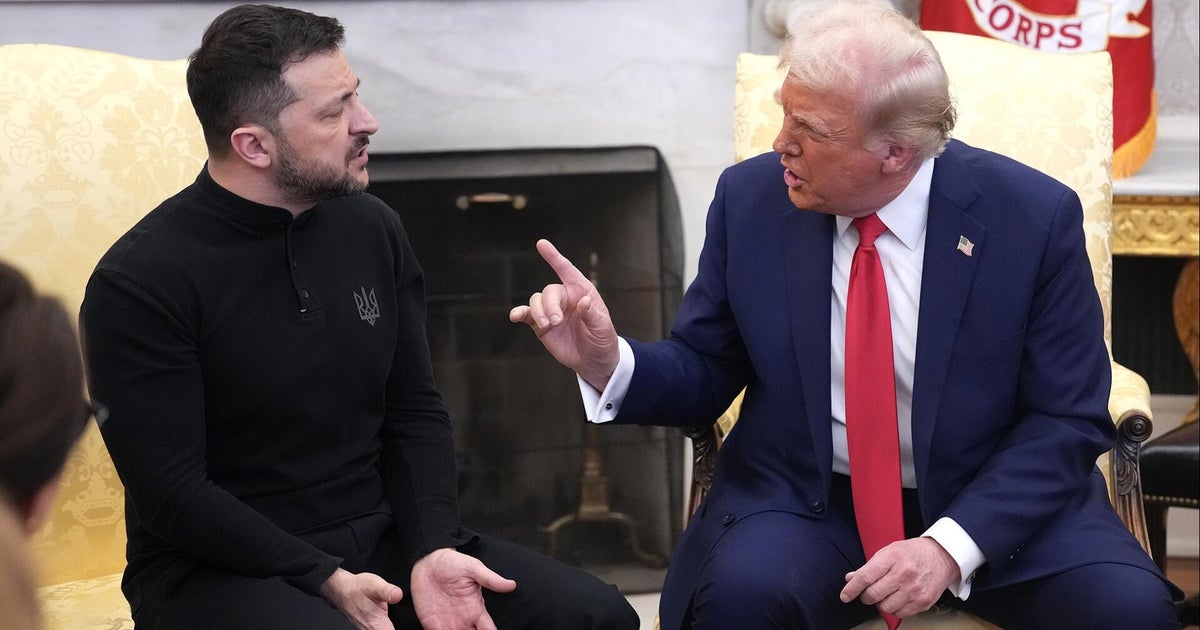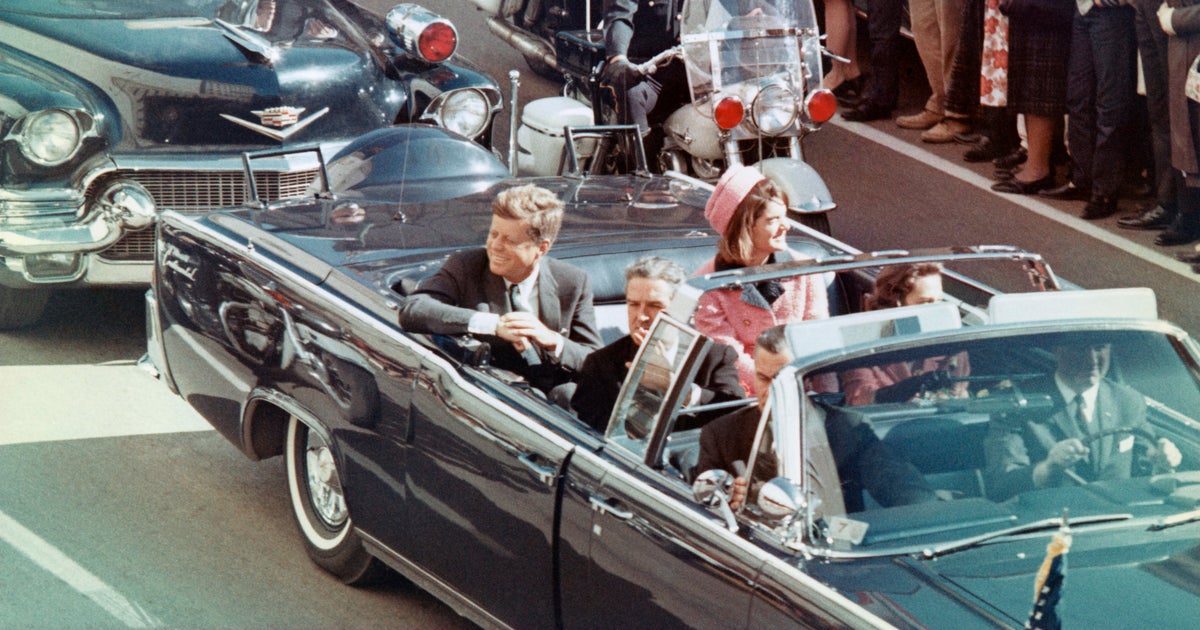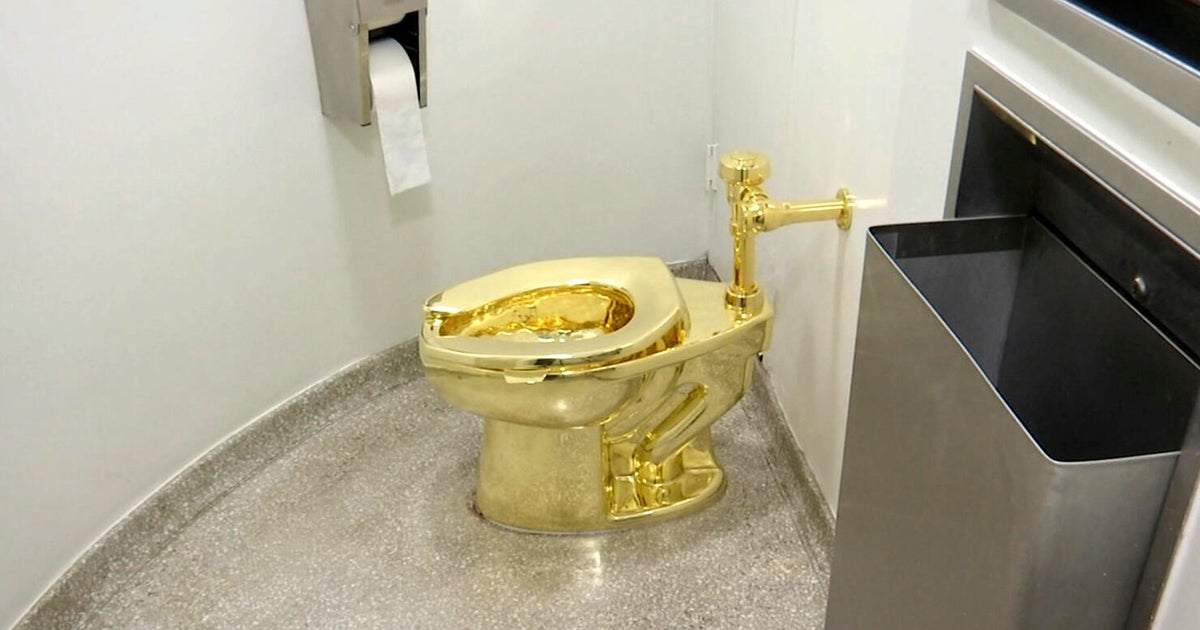Iran threatens European troops for 1st time as it admits it "lied" about jet
Tehran, Iran — Iran's president warned Wednesday that European soldiers in the Mideast "could be in danger" after three nations challenged Tehran over breaking the limits of its nuclear deal. Tehran's top diplomat meanwhile acknowledged that Iranians "were lied to" for days following the Islamic Republic's accidental shootdown of a Ukrainian jetliner that killed 176 people.
President Hassan Rouhani's remarks in a televised Cabinet meeting represent the first direct threat he's made to Europe as tensions remain high between Tehran and Washington.
Iranian Foreign Minister Mohammad Javad Zarif's admission that the Islamic Republic lied to its own people, meanwhile, came at a summit in New Delhi on Wednesday. It was the first time an Iranian official referred to earlier claims from Tehran that a technical malfunction downed the Ukraine International Airlines flight as a lie. The shootdown — and subsequent days of denials that a missile had downed it — sparked days of angry protests in the country.
How we got here
Tension between Iran and the U.S. mounted steadily in the wake of President Donald Trump's unilateral move to pull the U.S. out of the international nuclear deal in May 2018, about three years after former President Barack Obama's administration signed onto it after helping craft the accord.
Even before his election in 2016, Mr. Trump had lambasted the deal as too generous for Iran and argued that it rewarded the Islamic Republic with sanctions relief in exchange for insufficient checks on its nuclear and weapons programs.
Iran methodically rejected constraints placed on it under the accord in an official protest against the U.S. withdrawal, but it was the country's unofficial response which eventually drew a stronger response from Washington. Iran's proxy groups in Iraq ramped up small-scale attacks U.S. troops, culminating with the late-December attack on a base in Kirkuk that killed an American contractor.
The tensions reached fever-pitch two weeks ago with the American drone strike in Baghdad that killed the powerful Revolutionary Guard General Qassem Soleimani, who had led Iran's proxy forces abroad.
Iran retaliated with a ballistic missile strike targeting Iraqi military bases housing U.S. forces early last Wednesday, just before an anti-aircraft battery shot down the Ukrainian airliner taking off from Tehran's Imam Khomeini International Airport.
Iran admits lies, but still blames U.S.
Zarif, speaking in New Delhi at the Raisina Dialogue, blamed U.S. "ignorance" and "arrogance" for "fueling mayhem" in the Middle East. However, he also acknowledged the anger Iranians felt over the plane shootdown.
"In the last few nights, we've had people in the streets of Tehran demonstrating against the fact that they were lied to for a couple of days," Zarif said.
Zarif went onto praise Iran's military for being "brave enough to claim responsibility early on."
However, he said that he and Rouhani only learned that a missile had down the flight on Friday, raising new questions over how much power Iran's civilian government has in its Shiite theocracy. Iran's paramilitary Revolutionary Guard, which shot down the aircraft, knew immediately afterward its missile downed the airline.
The Guard is answerable only to Supreme Leader Ayatollah Ali Khamenei, who is expected to preside over Friday prayers in Iran for the first time in years over anger about the crash.
Threats to Europeans over nuke deal
Amid all of this, Britain, France and Germany launched the so-called "dispute mechanism" pertaining to Iran's 2015 nuclear deal with world powers. Speaking before his Cabinet, Rouhani showed a rarely seen level of anger in his wide-ranging remarks Wednesday.
"Today, the American soldier is in danger, tomorrow the European soldier could be in danger," Rouhani said. "We want you to leave this region but not with war. We want you to go wisely. It is to your own benefit."
Rouhani did not elaborate.
European forces have been deployed alongside Americans in Iraq and Afghanistan.
Rouhani separately criticized Europe's "baseless" words regarding the nuclear deal. Iran had been holding out for Europe to offer a means by which Tehran could sell its oil abroad despite U.S. sanctions. However, a hoped-for trading mechanism for other goods hasn't taken hold and a French-pitched line of credit also hasn't materialized.
After Soleimani's killing, Iran announced it would no longer abide by any of the nuclear deal's limits, which had been designed to keep Tehran from having enough material to be able to build an atomic bomb if it chose. However, Iran has said it will continue to allow the United Nations' nuclear watchdog access to its nuclear sites. Rouhani on Wednesday also reiterated a longtime Iranian pledge that Tehran doesn't seek the bomb.



